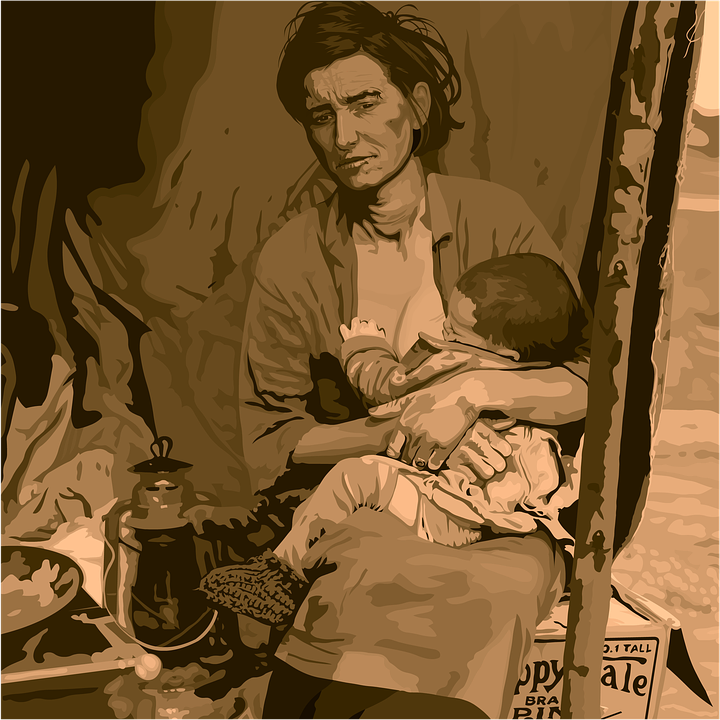Preparing to be Homeless
Information on facing immanent homelessness.
We hope the information available on this site will help you to quickly transition back to a sustainable and healthy life. Conserving your resources will speed up the process. Many of the suggested material items can be found in thrift shops, Dollar stores, and Craig’s List.
It is not uncommon for a person to know in advance that they are going to become homeless. This may happen due to job loss, medical expenses, or a failed marriage. There is a strong probability that this will cause a depressed state when in fact you need to direct your energy to spring into action. Facing up to, and acting on this challenge may actually help you out of a funk. If you see it coming a few months ahead; that is a good thing. You will have time to prepare which will make a great difference in the outcome.
Stay In Your Home For As Long As Possible:
Some of the living situations you will face is: sofa hopping (if your friends will have you), living in your vehicle, living on the street, living in shelters, or various combinations of these. You will however want to expire all options before this happens. Stay in your residence for as long as possible. Once you are homeless the road back will be steep and painful. Apply for rent subsidies HUD section 8 Certificate Program, homeless prevention programs, and check in with social services to see what they can provide, check with friends and family to see if they can help. Do not be embarrassed. You are no less of a human for falling on hard times. This is not the time to beat yourself up, or for going it alone.
Conserve:
Reduce your expensiveness immediately. Get rid of anything that is not essential, cable TV, expensive club memberships, hair salons (find less expensive ones), cheaper phone plan, no restaurants, or paid events. Use a food bank, apply for food stamps. Start using a Dollar store. You need to save what money you have. Who knows, if you are frugal enough and get some help, you may not have to move out.
Budget:
Work on your budget. Write down all income verses expenses to see where you stand. Set priorities such as 1- food, 2- car and car insurance payments, 3- medical insurance, 4- mobile phone, 5- fitness club membership, etc.
Gather Your Stuff:
As soon as possible start gathering the things you will need. You may already own a lot of it such as: Day pack, camping gear, hidden money pouch, Swiss army knife, all-in-one tool, toiletry kit, rope, small medical kit. Gather your documents: Drivers license or ID, resume, proof of vehicle insurance, medical insurance card if you have one, Social Security card or number. You may want to print out important contacts in case you loose your phone. You will need a mailing address. If you can use friends, great, if not get a rental box.
Vehicle:
Swapping car for SUV, wagon, or van. If you own a car that has few, or no payments due, you may be able to trade that in for something larger. Only contemplate doing this if you think it will be long term. Whatever you do, do not add any debt to make a swap. Also, only do this if you can get a good working vehicle in the process, don’t trade down, trade across. Avoid dealers, use Craig’s list to buy and sell. The advantages to having a van is you will be comfortable, be able to cook food, and work from it. It would be like owning a mini home. Lower gas mileage will be a disadvantage.
What To Take:
Practice packing compactly. Select what you really need. If you are in a vehicle you may be able to have 6 shirts. If you are on the street with a pack, it will be half of that. Suggested clothing and gear will be in the Street and Vehicle segments. Layout everything you will need such as toiletries, camping items, tech stuff. Make lists. Judiciously decide what is practical to take. If you will be on the street, try out your pack, see how it feels. If you will be in a vehicle, pack it to see how and what fits. Spend a night or two sleeping in your vehicle to learn what is needed.
Resources:
Locate resources. Is there any friends or family residences where you can take showers, or do laundry (laundromats are expensive). Can you leave stuff in their garage? Where is the food bank, look for support programs. If you are going to be staying in a shelter consider doing it in a better neighborhood. Better neighborhoods have better shelters. If you don’t have a dependable place to clean up, get a low cost gym membership. Planet Fitness has a $10 monthly membership.
Sell your valuable non-essentials items while still in your housing, it will be easier than doing it later. Give what you don’t need away. If you can afford, get a storage unit and store the rest.
Simplifying:
Find simpler ways to dress and groom. If you are a woman see how much makeup you can do without, try the natural look. Get a haircut that is simple and easy to manage, maybe shorter. If your are still menstruating get some full size panties to accommodate the free pads that are handed out in shelters. This will save money on Tampons. Take clothing that won’t show dirt in case you have to wear them a bit longer. Use layers to accommodate varying temperatures and save space. Apply antiperspirants on the inside of your clothes as well. It will stop the odor before it comes through the clothing.

